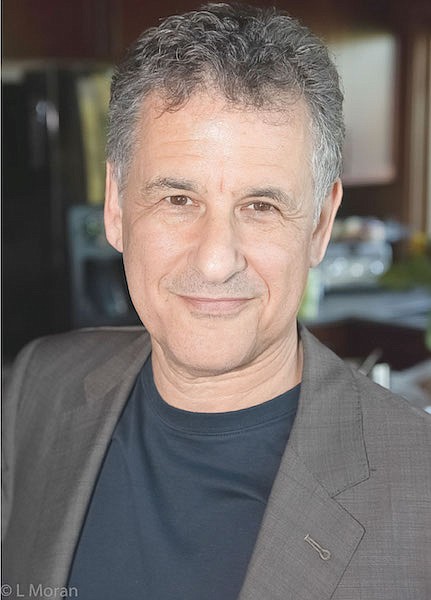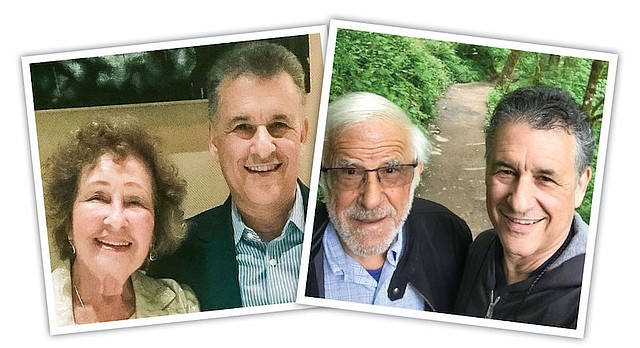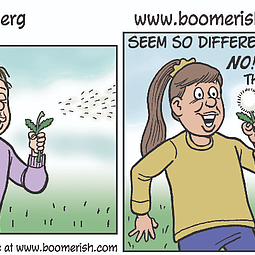Successful Aging with Daniel Levitin
January 1, 2020 at 12:00 a.m.
…by Keri Pollock
Dr. Daniel Levitin’s latest book explores aging, including tips on how to rejuvenate your brain. He demonstrates that we can learn much from those who age joyously, and he urges our culture to take advantage of older people’s wisdom and experience.
Neuroscientist. Musician. Author. With a career that began in the music industry working with top talent, then neuroscience making fascinating discoveries about how musicians’ brains work and as the author of numerous bestselling books, Daniel Levitin’s work has regularly brought him to the Seattle area.
Dr. Levitin will be returning to Seattle on a book tour this month. His newest book, Successful Aging: A Neuroscientist Explores the Power and Potential of our Lives, will be available January 7, and Dr. Levitin will be at Seattle’s Central Library the following week (details below) to talk about his discoveries—discoveries that translate into relevant, useful and actionable knowledge for the rest of us.
How did a boy who began experimenting with recorded music at age four and who grew up to work for years as a session musician and record producer come to write a highly anticipated book about the aging process?
It was a long and winding road. Levitin continued his recording experiments throughout his school years. He planned to go straight from high school into a recording career until he was advised by a respected sound engineer to first enroll in college. He went to M.I.T. until his stereo system caught fire in a dorm room while listening to Abbey Road at 110 dB. His next stop was Stanford University to study music and psychology. Another roadblock in his academic career came just before his senior year when he learned that he could not major in saxophone. He left school for the music industry.
Levitin worked for ten years as a session musician, sound engineer and record producer for countless rock groups until he finally returned to college at Stanford, earning a B.A. in Cognitive Psychology while lecturing on audio recording in the music department. He went on to receive a PhD in Psychology from the University of Oregon while researching absolute pitch (the rare ability of a person to identify or re-create a given musical note without the benefit of a reference tone).
Throughout his professional life, Levitin has written extensively for scientific journals, as well as trade journals such as Grammy, Billboard and others, along with interviewing numerous artists including Stevie Wonder, Joni Mitchell, Paul Simon and kd lang.
He is also the author of four consecutive #1 bestselling books. You may be familiar with Levitin through his first book, This is Your Brain on Music (2006), which spent over a year on The New York Times bestseller list, has been translated into 18 languages and was the basis for two award-winning documentaries. The book’s popularity demonstrates what all subsequent books by Levitin have accomplished: they help to make complex scientific discoveries understandable and accessible to laypeople, like myself.
For Successful Aging, Levitin shares that he has reviewed around 4,000 papers from peer-reviewed scientific literature. The bibliography is deep and filled with additional paths of discovery if you chose to explore them further. To his credit, he has synthesized and organized the material thoughtfully to help us find encouragement, clarity and answers around how best to make the most of growing older—which is inevitable and something that we all experience, from the day we are born.
When asked about what inspired him to write about aging, a departure from his other books, Levitin reflected that “as a college professor, I am around people of all ages, from 17 to 101 – yes, my colleague Dr. Brenda Milner at the Montreal Neurological Institute just turned 101. I noticed that some people tend to age better than others and as a neuroscientist, this made me curious to find out why.”
It is probably fair to assume that we all have had older adults in our lives who have served as guides on how to age successfully. Levitin has many examples, including his own parents. As Levitin reflects “[A]s I’ve grown older myself and have spent more time with people who are in the last quarter of their lives, I’ve seen a different side of aging. My parents are now in their mid-eighties and are as engaged in life as they have ever been… They look old, but they feel like the same people they were fifty years ago, and that amazes me.”
On the work front, Levitin’s father, a successful business leader throughout his career, was encouraged to retire at 62 to make way for someone younger. Feeling pushed out, his self-worth in question, he began to experience physical ailments, a shrinking social circle and depression. This was in 1995. At that time, a slow shift in societal and employment thinking began to emerge and recognize the value of older adults.
To his father’s credit, he began networking, which led to an opportunity at USC Marshall School of Business where he is now teaching a full load of four courses per semester. His skills as a businessperson bring real world experience and knowledge into the classroom, something that a younger professor can’t. And guess what? Once he found meaningful work, the physical ailments and depression dramatically lessened. Mr. Levitin just signed a four-year renewal to teach until he is 89.
Levitin’s mother has a similar story of evolution, change and growth. A writer with over 40 published novels to her credit, she found that publishers were no longer interested in her work after she turned 75. As a result, she pursued playwriting. Writing plays required her to develop new skills and explore a new profession. As a playwright, she had to learn how to write a script, format it on her computer, find a director and performance space for her play, and audition actors, along with the myriad of other requirements for producing a play. Her first play, when she was 78, was staged in a well-known Los Angeles theater.
Outside of work, Levitin’s parents are socially active, love hiking and nature, engage in spiritual pursuits, and “[w]here certain faculties have slowed, they find that extraordinary compensatory mechanisms have kicked in—positive changes in mood and outlook, punctuated by the exceptional benefits of experience.”
While Levitin doesn’t minimize the changes and losses that occur as we age, he does make a compelling, evidence-based argument that older age is its own developmental stage—like infancy and adolescence—that brings with it unique advantages and demands. He encourages us to plan thoughtfully for old age as the average life expectancy continues to increase.
Surprising discoveries were made along the way while researching the book. “The myth of failing memory is one,” says Levitin, a myth he covers thoughtfully throughout the book. “I’m not saying that older adults don’t have ‘senior moments’ or that we don’t forget; I’m just saying it’s not nearly as bad as we think it is. I have 20-year-olds in my classes who are losing their cell phones, keys, forgetting passwords, showing up on the wrong day for an exam—real memory problems. The difference is the story we tell ourselves. At 20, we say ‘I guess I’m not getting enough sleep’ or ‘I have too much on my plate.’ At 70 we say, ‘OMG, this must be Alzheimer’s.’ Same behaviors (minus the classroom exams), different explanations.”
Another unexpected discovery was the sheer number of inspiring people in their 80s and 90s and beyond who are making great contributions: former U.S. Secretary of State George Shultz were made along the way while researching the book. “The myth of failing memory is one,” says Levitin, a myth he covers thoughtfully throughout the book. “I’m not saying that older adults don’t have ‘senior moments’ or that we don’t forget; I’m just saying it’s not nearly as bad as we think it is. I have 20-year-olds in my classes who are losing their cell phones, keys, forgetting passwords, showing up on the wrong day for an exam—real memory problems. The difference is the story we tell ourselves. At 20, we say ‘I guess I’m not getting enough sleep’ or ‘I have too much on my plate.’ At 70 we say, ‘OMG, this must be Alzheimer’s.’ Same behaviors (minus the classroom exams), different explanations.”
Another unexpected discovery was the sheer number of inspiring people in their 80s and 90s and beyond who are making great contributions: former U.S. Secretary of State George Shultz (age 98); actress, dancer and singer Rita Moreno (age 88); Federal Judge Jack Weinstein (age 97); runner Julia “Hurricane” Hawkins (age 103).
Life expectancy continues to increase. In the United States, the average lifespan is 78.6 years: 81.1 for women and 76.1 for men. According to the U.S. Census Bureau, “the age group 85 and older is now the fastest growing segment of the U.S. population. The growth of the U.S. population age 65 and older exceeds that of the total population and the population under age 65. Lower birth rates and increased longevity have led to this rapid growth, not just in the United States but across the world.
Recognizing that most of us are going to live well into our 70s, possibly 80s, 90s and beyond, making the most of those years makes sense. A consistent thread of thought and encouragement throughout Successful Aging is for everyone to change the conversation about aging, to approach and plan for this as a new period for development in our lives.
“We often look at old age as a time of limitations, infirmities and sadness. Of course, it’s true that as we get older there are a number of things we don’t do as well as when we were younger. But that doesn’t necessarily mean that all older adults are sad, or depressed…Happiness tends to decrease beginning in the late thirties and then begins to increase sharply after age 54.”
Insights into why some of us age better than others can be gleaned from Successful Aging, insights that can be directly implemented into our own lives to help create a path for creativity, better health and a renewed sense of purpose.
With that in mind, let’s embrace Dr. Levitin’s Top Ten Tips for Rejuvenating Your Brain (and aging successfully) to make the most of our longevity:
- Don’t retire, or if you do, take up volunteering or hobbies. Don’t stop being engaged in meaningful work.
- Look forward, don’t just look back – reminiscing doesn’t protect health.
- Exercise. Get your heart rate going, preferably in nature.
- Embrace a moderated lifestyle with healthy practices.
- Keep your social circle exciting and new. Turns out the adage is true: “Make new friends but keep the old, one is silver and the other is gold.”
- Spend time with people younger than you.
- See your doctor regularly, but not obsessively.
- Don’t think of yourself as old.
- Appreciate your cognitive strengths, including pattern recognition, crystallized intelligence, wisdom and accumulated knowledge.
- Keep your cognitive abilities strong by engaging in experiences that create unique experiences, like traveling, spending time with grandchildren and immersion in new activities.
What are your plans for optimizing your “last quarter” of life? What changes do you intend to make to age successfully? Join me in embracing this period of life as an opportunity to learn new things, make new friends, get outside, engage in physical activity, make that doctor’s appointment—to celebrate your age, experience and the wisdom that comes with it.
Keri Pollock is director of marketing & communications for Aging Wisdom, a care management practice based in Seattle. She serves on the Frye Art Museum’s Creative Aging Advisory Committee, a co-sponsor of Dr. Levitin’s talk at Seattle Central Library, keri@agingwisdom.com
More Information
Daniel Levitin will be speaking on Successful Aging at Seattle’s Central Library (1000 4th Avenue) on January 16 from 7:00 to 8:15pm.The event is free, and registration is not required. However, space is limited so please come early to make sure you get a seat. For more information on this event, visit the Event Calendar at www.spl.org or call 206-386-4636.
Dr. Levitin enjoys his time in Seattle and coming here is always at the top of his list for book tours. Among some of his favorite places to visit are Pike Place Market, the University of Washington, Elliott Bay Book Company, the Seattle Symphony, Washington Park Arboretum and Seattle Japanese Garden, adding “I try to fit this in every visit. And the Woodland Park Zoo, where a friend of my wife’s is a zookeeper to the great apes and where we sometimes get to feed them.”






